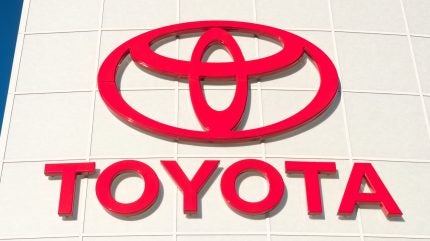
Toyota Motor has deferred its planned electric vehicle (EV) battery factory in Fukuoka prefecture, Japan for the second time, Nikkei Asia reported.
The Japanese company will use the coming year to review and recalibrate the project in light of softer EV demand, according to Seitaro Hattori, governor of the southwestern prefecture, who spoke after meeting Toyota president Koji Sato.

Discover B2B Marketing That Performs
Combine business intelligence and editorial excellence to reach engaged professionals across 36 leading media platforms.
Now, the project has been pushed back from an original 2028 start.
Some capacity at the site could be redirected to vehicle or component production.
In February, Toyota acquired land worth about Y6bn ($39m) in an industrial park under development in the prefecture’s northeast.
The sale required construction to commence within three years, and Toyota has signalled its plan to meet that obligation.
The automaker had intended to sign a location agreement with the prefecture in April but told officials it would delay the project until autumn because of weakening EV demand.
Toyota’s recent financial disclosures forecast global EV sales, including Lexus, of 277,000 units for the fiscal year ending March 2026, 10% below its August projection.
The company might reconsider plans targeting 1.5 million global EV sales in 2026.
Toyota is stepping up development and sales in China, where EV uptake is stronger and competition from domestic rivals is intensifying. It launched a lower-priced model there in March.
Last year, between April and September, the carmaker’s overall sales in China declined to 860,000 vehicles, then recovered to 910,000 over the same period in 2025.
Its EV strategy is being tailored by region, with a Lexus plant in Shanghai scheduled to start up in 2027.
Automakers elsewhere are also revisiting battery investments amid slower EV sales.
Nissan Motor in May scrapped a planned $1.1bn EV battery facility on Kyushu, while Honda Motor is delaying the start of an EV and battery plant in Canada by around two years.






